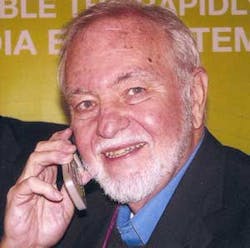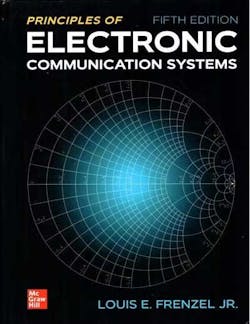I’m sad to say that my friend and colleague, Lou Frenzel, Jr., has passed away. Lou was a long-time contributor and editor at Electronic Design. You can still read his Communiqué blog entries that covered a range of topics from software-defined radio (SDR) to his time with Heathkit.
Lou is one of the few editors that had both the technical background and the chops to write well. He’s in the same class as another Electronic Design alum, Bob Pease.
Readers of our publication will be familiar with Lou as he only recently retired from writing for us. More engineers will know him from his most significant book offering, Principles of Electronic Communication Systems. Sadly, the fifth edition will be the last of the series.
The book is likely to remain a fixture in college courses for many years to come. It’s an exhaustive tome starting with electronic fundamentals and modulation techniques all the way through to optical and wireless communication methods. If you don’t have a copy, it’s worth investing in.
Lou picked up his bachelor’s degree from the University of Houston and received a master’s degree from the University of Maryland. He worked in industries including aerospace, geophysics, and consumer electronics, moving up to engineering management along the way in addition to being a freelance writer.
Lou held vice-president-level positions with Heathkit, Longman Crown, McGraw Hill, and Technovate, and he taught communication and electronics college classes for nine years. It’s an impressive résumé, yet Lou also was a warm and engaging person willing to help out new engineers and writers.
Along the way, he joined up with Electronic Design. He was a part-time contributing editor and full-time editor at various times, writing articles on RF and communication topics. His Communiqué blog touched on any subject he found interesting, much to the enjoyment of readers.
Lou was a long-time amateur radio operator (W5LEF) and electronic hobbyist. It was fun working with Lou—he was always asking me about software and microcontrollers, and I took advantage of his encyclopedic knowledge of RF and IoT communication technology. For those wishing to follow in his footsteps, get a good engineering degree and check out his article “10 Tips for Writing Your First Technical Book.”



